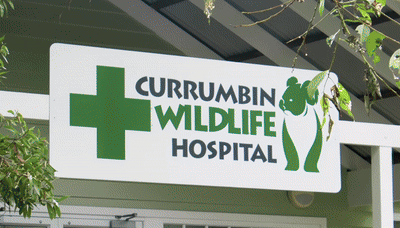16,000 Patients: A record year for Currumbin Wildlife Hospital
Currumbin Wildlife Hospital tackled rising admissions in 2024, advancing care and research for native wildlife.
What’s Happening?
Currumbin Wildlife Hospital has reported its busiest year on record, treating 16,125 wildlife patients in 2024—a staggering increase of over 2,000 cases compared to 2023. December alone set a monthly record, with over 1,200 rainbow lorikeets admitted as summer pressures continue.
Senior Veterinarian Dr Michael Pyne OAM noted, “This year has been astronomical. We’re seeing a surge in wildlife admissions, especially rainbow lorikeets and flying foxes.
It’s a testament to both the fragility of our native species and the vital role we play in their survival.”
Why it Matters?
The growing number of patients highlights alarming trends in wildlife health. Conditions like paralysis in lorikeets and flying foxes remain a significant concern, with causes still not fully understood. Meanwhile, ground-breaking research, such as a koala vaccination trial against deadly chlamydia, offers hope for the future.
“The wildlife we treat are more than just numbers,” Dr Pyne emphasised. “They’re individuals with vital roles in our ecosystems.”
Local Impact
Currumbin Wildlife Hospital operates as a lifeline for native wildlife, offering services free of charge as a not-for-profit organisation.
However, rising patient numbers are straining its resources, making sustainable funding critical.
By the Numbers:
16,125 patients: Wildlife treated in 2024, marking a record-breaking year.
$600 per lorikeet: Average cost of treating lorikeet paralysis, with each case taking up to four weeks.
400 koalas vaccinated: Against chlamydia as part of a joint research trial with Queensland University of Technology.
Zoom In
The success of the koala vaccination trial is evident. Of the vaccinated population, 34 joeys and six “grand-joeys” were born in 2024.
With chlamydia causing infertility, these births offer hope for a species facing local extinction by 2050.
Paralysis in lorikeets and bats remains a critical issue. Dr Pyne highlighted the need for research: “Every lorikeet with paralysis costs around $600 to treat. Without research, we’re only addressing the symptoms and not the cause.”
Zoom Out
Beyond Currumbin, the increasing demand for wildlife care underscores broader ecological challenges.
Habitat destruction, climate change, and human-wildlife conflicts are placing Australia’s native species under immense pressure.
What to Look For Next?
Currumbin Wildlife Hospital is calling for more ongoing funding to sustain its mission.
Donations directly support vital wildlife care and research efforts. “We’re always grateful to the donors, supporters and partners that we have, but we are in need of more ongoing funding to meet this unprecedented demand,” Dr Pyne stressed.
Every dollar makes a difference. Contributions can be made directly at Currumbin Wildlife Hospital to help protect and rehabilitate Australia’s unique wildlife.




